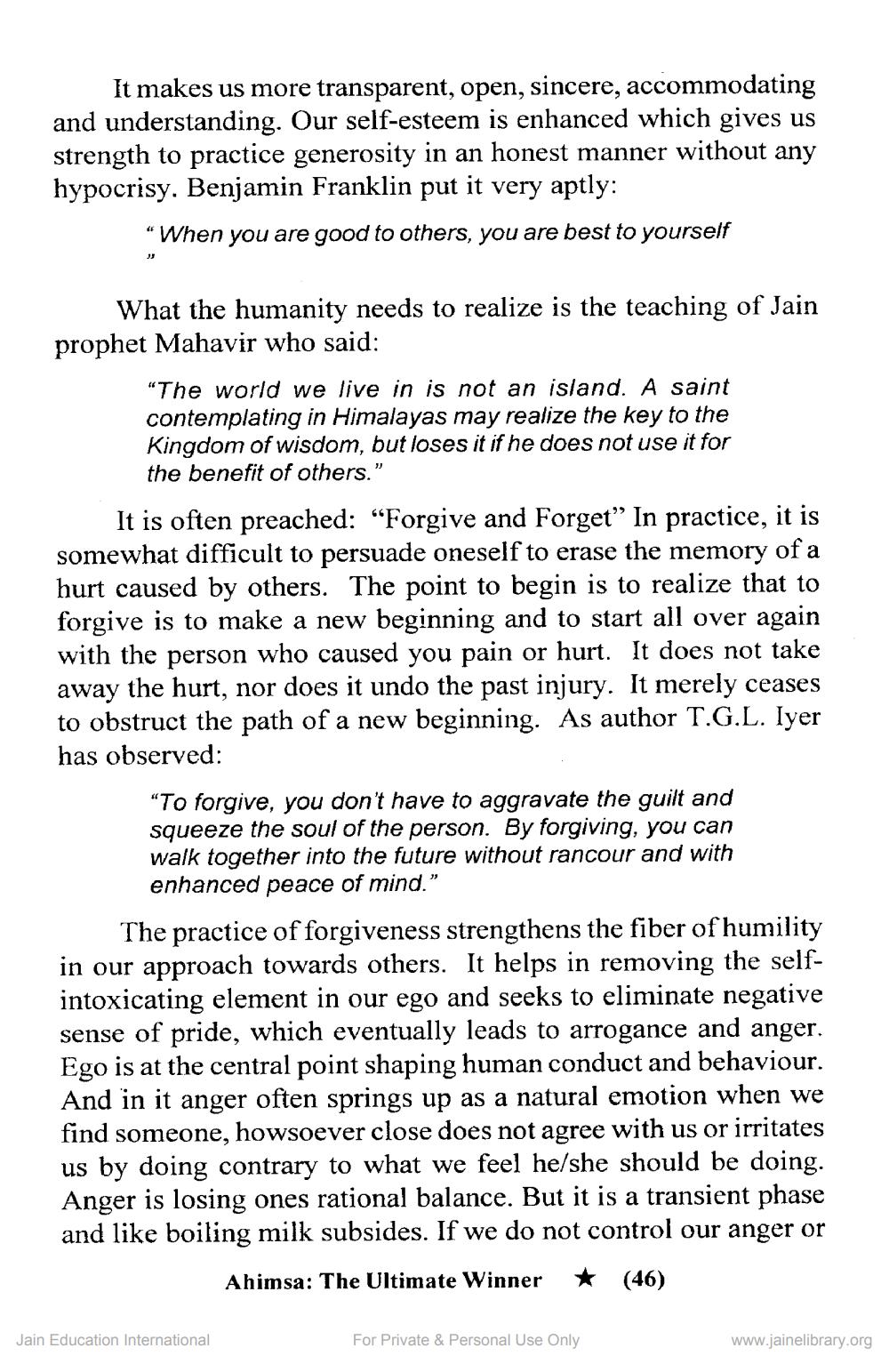________________
It makes us more transparent, open, sincere, accommodating and understanding. Our self-esteem is enhanced which gives us strength to practice generosity in an honest manner without any hypocrisy. Benjamin Franklin put it very aptly:
"When you are good to others, you are best to yourself
What the humanity needs to realize is the teaching of Jain prophet Mahavir who said:
"The world we live in is not an island. A saint contemplating in Himalayas may realize the key to the Kingdom of wisdom, but loses it if he does not use it for the benefit of others."
It is often preached: "Forgive and Forget" In practice, it is somewhat difficult to persuade oneself to erase the memory of a hurt caused by others. The point to begin is to realize that to forgive is to make a new beginning and to start all over again with the person who caused you pain or hurt. It does not take away the hurt, nor does it undo the past injury. It merely ceases to obstruct the path of a new beginning. As author T.G.L. Iyer has observed:
"To forgive, you don't have to aggravate the guilt and squeeze the soul of the person. By forgiving, you can walk together into the future without rancour and with enhanced peace of mind."
The practice of forgiveness strengthens the fiber of humility in our approach towards others. It helps in removing the selfintoxicating element in our ego and seeks to eliminate negative sense of pride, which eventually leads to arrogance and anger. Ego is at the central point shaping human conduct and behaviour. And in it anger often springs up as a natural emotion when we find someone, howsoever close does not agree with us or irritates us by doing contrary to what we feel he/she should be doing. Anger is losing ones rational balance. But it is a transient phase and like boiling milk subsides. If we do not control our anger or
Ahimsa: The Ultimate Winner
★ (46)
Jain Education International
For Private & Personal Use Only
www.jainelibrary.org




